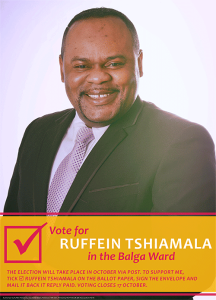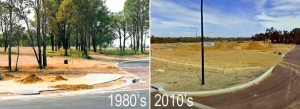When?
Labour Movement Education Association Inc
Applications for the Labour Movement Internship (LMI) are now being sought for the 2017 LMI program.
The internship is a paid, full-time, five-week program running from Monday 23 January to Friday 24 February 2017.
As part of the selection process, we’re looking for applicants with:
- Demonstrated interest in the Labour Movement
- Demonstrated interest in union activism
- Maturity and common sense
- Good communication skills
- Reliability
- Empathy and a capacity to work with all people
Applicants must commit to the full five-week internship.
Email your CV along with a letter detailing your relevant political and/or union interests and why you should be considered for the Labour Movement Internship to:
lmeainc@hotmail.com and if you require further details, please contact the Director of Training, Juliana Plummer on 0427 519 224.
Applications close COB, Monday, 21st November 2016 for the Labour Movement Internship (LMI) 2017.
Urban planning must include trees – network
One of the key platform I am running my election campaign with is environmental protection. If you elect me as your councillor on the 17 of October, I will fight hard to increase the existing urban trees canopy cover. This will improve the liveability, lift the profile and add value to the property within the Balga Ward. I am committed to make this one of my priority.
Urban heat is already a serious public health threat in Australian cities, including Perth and the City of Stirling has some of the hottest suburbs. Areas such as Westminster and parts of Dianella near Mirrabooka are within a degree of Perth Airport, which is Perth’s hottest location.
Heat in treeless built up areas is worse because the sun beats down during the day on all of the hard surfaces, like bitumen, concrete and roofs (especially dark roofs), which absorb and trap the heat. At night built up areas can be 6-12 degrees hotter than rural areas where there are trees and vegetation. This is called the ‘Urban Heat Island Effect’.
The most simple and effective way to reduce urban heat is with trees and greenery, but especially trees.
Ruffein Tshiamala (Ruffy) your candidate in the City of Stirling’s Balga Ward.
Library starts a new chapter for Nollamara
- Nollamara Primary School’s new $1.3 million library opened
- IT integrated library to benefit both staff and students
A new library resource centre at Nollamara Primary School will provide students with the best possible environment for learning.
Education Minister Peter Collier, who officially opened the new $1.3 million building today, said the new centre would significantly benefit both students and staff.
“Computer technology is integrated in the new building making the library a one-stop-shop for students and staff to access reading materials and other resources easily,” Mr Collier said.
“The large resource area includes spaces for teaching and a work area for library staff.”
The new library’s design also complements the red brick heritage style of the school.
The Minister said the building added to the already outstanding facilities at Nollamara Primary School.
“Students are enjoying reading in the new comfortable areas which include bright and modern library furniture,” he said.
“There is a focus on literacy at the school and there are exciting language and writing programs for students. The resources in the new library are certainly helping to strengthen the fantastic work being done at the school.”
Fact File
- Nollamara Primary School has 235 students including 70 students taking part in the intensive English program
- For more information, visithttp://biggerpicture.education.wa.edu.au

City of Stirling local government election 2015
Hi everyone, as many of you are aware that I am standing as a candidate for the Balga Ward in the City of Stirling local government election.
The Balga Ward includes the suburbs of Mirrabooka, Balga, Westminster, Nollamara & a part of Dianella. I am humbly requesting for your support. The election will take place in October via post, you will receive your postal vote package toward the end of September. To Support me, tickü Ruffein Tshiamala on the ballot paper, sign the envelop flap and post it using the reply paid envelop provided.
Residents need to be enroll by the 28th August to be able to vote, please encourage friends, families and neighbors who lives within the Balga Ward to enroll by the 28th August 2015 to get ready for vote by the 19 October. Thank you!
ABOUT ME
As a long-time resident of City of Stirling, along with my wife and two children, I understand the needs of our community and the value of our unique lifestyle and environment.
I believe people should be given a say in shaping their own communities and I will work hard to protect our democratic rights to do so. With your support I am committing to listening to you, and working hard to ensure that your rates are properly managed with transparency and accountability.
I will do my best to achieve the following:
- Working with the community to find better solutions to improving local security;
- Reduce the effects of climate change and rising temperatures by supporting initiatives to increase existing urban trees canopy coverage, and upgrade parks and reserves;
- Work with all communities to develop initiatives and events that promote cultural integration;
- Improving road safety, reducing traffic congestion, fighting for better public transport, and well-connected bike and footpaths; and
- Support our local clubs, businesses, and community organizations to remain vital and financially sustainable into the future.
I bring to council a strong track record of community involvement, and extensive professional expertise, including:
- Member of the Housing Crisis Committee
- Member of the Stirling Urban Tree Network
- Past Community Liaison Officer of the African Professionals of Australia
- Past Chairman of the African Student Union of UWA
- Research & Support Officer at the WA Dept. Of Education
- Admin and Visa Processing Officer at the Department of Immigration and Border Protection
- Graduate at UWA with BA of Art in Political Science & International Relations
- Post-graduate at Monash University with Masters in Diplomacy and International Trade
I intend to use my professional skills and community experience to enhance council decision-making, and ensure a high standard of governance.
I am humbly asking for your support.
Yours sincerely,
Ruffein Tshiamala
City of Stirling Urban Tree Forum
On the evening of Monday 8th June, the Stirling Urban Tree Forum was held at the Mount Lawley Bowling Club, hosted by the Club and the Mount Lawley Society. There were several speakers dealing with the important issue of protecting the quality of our suburbs, especially preserving tree cover.
One of the speakers spoke at length about why we are losing trees in new and old suburbs. Peter Ciemitis, Senior Associate Planner at Roberts Day, gave five reasons for tree loss:
- Homebuyers favouring cheaper construction– Prior to the 1990’s, siteworks on residential blocks were undertaken individually by builders, which often left natural slope and trees, but at a greater cost to homebuyers. However, in an attempt to reduce construction costs, homebuilders since the ‘90’s have favoured those developers who ‘bulk-earthworked’ entire estates, where trees became a collateral loss. A generation later, industry experience in building on slope has been lost.
- Our desire for larger homes means less space for trees. We have shrinking household sizes, but curiously the largest houses in the world. The open space around houses has therefore shrunk, and even homebuyers today appear to favour a roofed alfresco to a garden in the diminishing space left.
- Clumsy design provisions– House design in WA is controlled by the R-Codes, which operate reductively by specifying building standards, irrespective of home typologies, with many standards being progressively reduced. The question is raised whether it is time for more sophisticated design controls such as Form Based Codes based on typologies. More imaginative planning provisions would allow for different typologies of housing, such as villas, maisonettes, terraces and townhouses with moderate sized gardens and space for trees, and apartment blocks of varying sizes and dimensions containing or surrounded by well-designed outdoor spaces including trees. Form Based Codes could allow different housing forms in one street, creating opportunities for planting trees of varying sizes to suit the buildings, and retaining old trees in situations where housing can be designed to accommodate them.
- Well-intentioned policies– Whether it be bush-fire control, drainage design or even driveway design, many standards have cascading unintended consequences for landform and tree retention. For example, the requirements of Water Sensitive Urban Design has seen the demise of the drainage sump (or ‘drainage pit’), but replaced with very wide, expansive, swallow swales which require earthworking on natural grades, and by implication, tree loss.
- Liability – the invisible hand of urban design. Councils are urged by residents to cut down trees due to possible falling branches. Statistically, the risk harm caused by a falling branch is infinitesimally smaller (ie, 100,000th), compared to the risk of harm by a passing car, are much lower, but statistics are not benchmarked evenly.
The benefits of trees were also summarised, including reduction of urban heat, reduction of household energy costs, reduction of residential traffic speed (trees on verges have an effect called ‘side friction’, slowing drivers down and making streets safer). The life of asphalt is doubled if it is shaded, a saving for local government facing crippling road maintenance costs. Leafy areas increase real estate values. Various REIWA and UWA studies have shown that mature trees on a block increase the value of a property by 5 to 10 percent.
Afficher le message d’origine


